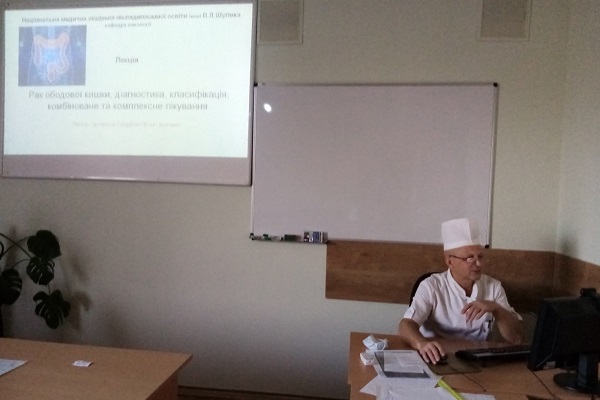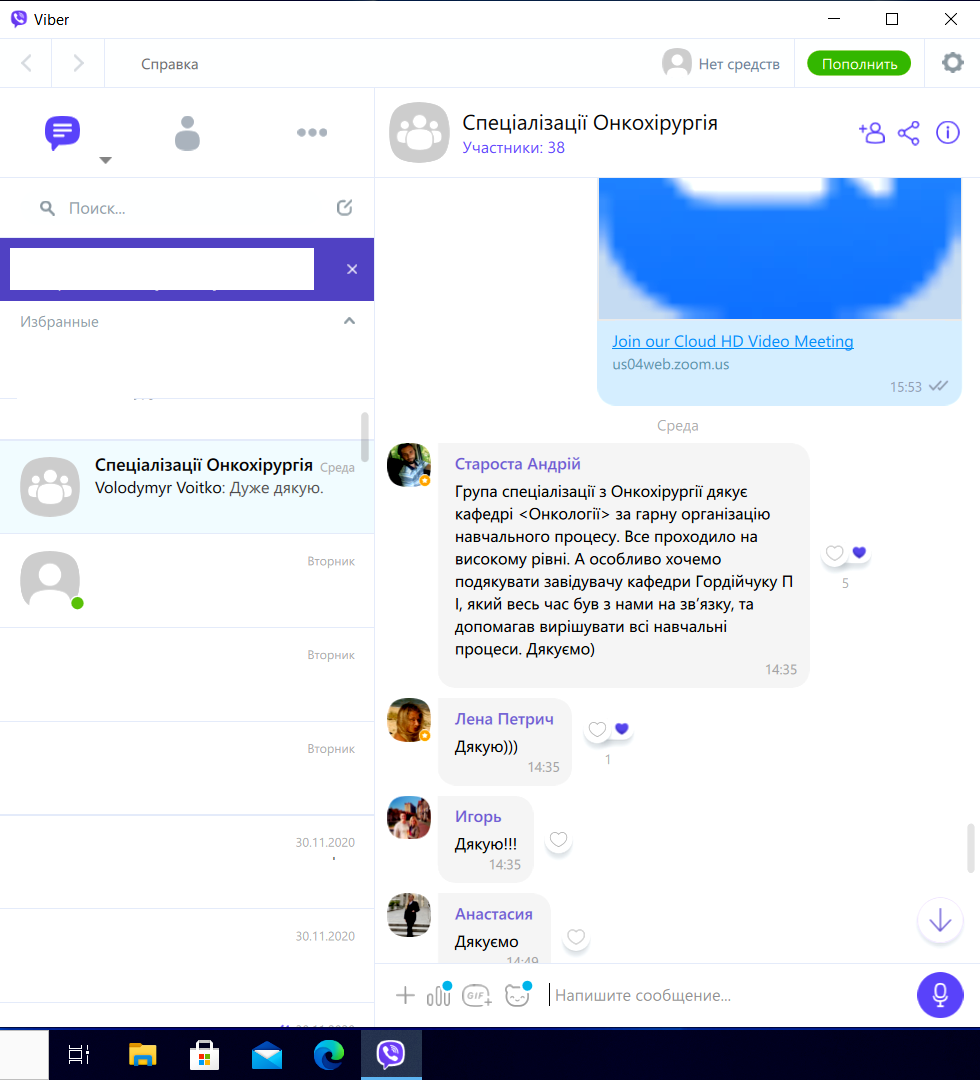On December 2, 2020, the Department of Oncology successfully completed the training on the cycle of specialization in "Oncosurgery", which lasted 3 months. The cycle trained 26 trainee doctors, 2/3 of whom lived and worked in the "red" epidemic zone. Therefore, we consider it necessary to analyze the organization and implementation of the educational process, highlight the weaknesses, share with colleagues the experience gained.

According to the developed algorithm of registration of students and organization of mixed form of education, two clinical bases of the department were used, namely: KNP "Kyiv City Clinical Oncology Center" and the National Cancer Institute. Students were divided into three groups: the first, 14 students - distance learning; second and third 6 students - full-time education. In case of a negative result on SARS-CoV-2, the second and third groups of students studied at certain clinical bases.
A group in Viber was created to clearly organize the learning process, efficiency and feedback. The group included students of the cycle and scientific and pedagogical staff of the department. During the training, the group grew to 42 participants, as it was joined by students who study according to an individual plan. The functioning of the group provided an opportunity to quickly organize and adjust training. The group at Viber worked according to the following scheme: on the eve, on behalf of the Department of Oncology, a link with an invitation to a lecture or a seminar on the topic and time was given. The invitation contained information about the lecturer. There was great feedback, so taking into account the wishes, some lectures began at 8:00 and others after 17:00. The Department of Oncology take the possibility of the students to listen to a specific topic of a lecture or seminar of the cycle.

Distance learning took place using the platform "ZOOM". The lecturer had the opportunity to give a lecture on his own equipment or use the auditorium equipped at the department with a connected wired Internet. Experience has shown that more than 90% of the material read was from department auditorium. In our opinion, this ensured the quality of the educational process. In the adjacent auditorium of the department, the responsible specialist monitored the quality of the lecture demonstration and, if necessary, adjusted the quality of the program, which added confidence to the lecturer in the coverage of his material. In our opinion, the disadvantage of the ZOOM platform is the need to restart the program and resume the continuation of the "conference" every 40 minutes, but after two weeks of training, this procedure was performed by all participants quickly and without problems. Thus, for three months, the scientific and pedagogical staff of the department conducted 31 classes online with a total duration of 3720 minutes (82.6 teaching hours).
According to the developed algorithm of the educational process, every 13 working days there was a rotation of groups: the first group of 14 students was divided into two and after testing switched from distance learning to full-time, and the second and third groups formed a distance learning group.
According to the existing quarantine requirements, the Department of Oncology organized the passing of the final computer test (exam). There were 4 computers with software for passing the final computer exam in different classrooms. With the permission of the administration of the academy, an exam schedule was drawn up. For three days, with a specific time for each student, passed the exam.
In our opinion, organization of the educational process for a large cycle allows us to fully successfully implement the curriculum.
Students of the cycle of specialization in "Oncosurgery" in the Viber group expressed their opinion about the organization and quality of the cycle (photo reviews attached).



